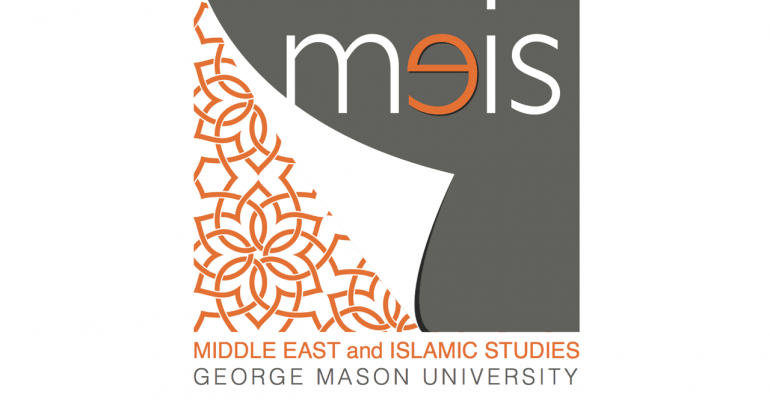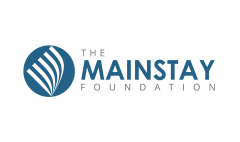Middle East and Islamic Studies Program
February 25, 2017 2023-07-24 16:19Middle East and Islamic Studies Program

Middle East and Islamic Studies Program
George Mason University
College of Humanities and Social Sciences
George Mason’s program in Middle East and Islamic Studies (MEIS) equips students with the tools and analytical skills for understanding major issues and debates in the study of the Middle East, Islam, and Muslim societies. Students study historical and contemporary aspects of society, economy, politics, and culture from both regional and global perspectives—with a strong emphasis on theory and methodology.
Students develop an understanding of the diverse dynamics and complex forces that shape modern Middle East realities. Going beyond security concerns, the program emphasizes the need for an understanding of the region’s history as a foundation for further in-depth inquiry.
Today, more than ever before, the politics of the Middle East play a significant role in America’s activities at home and abroad. The interdisciplinary Middle East and Islamic Studies Program at George Mason provides students with a firm grounding in the history, politics, and culture of this important region.
Under the guidance of internationally recognized faculty, students develop an understanding of the diverse dynamics and complex forces that shape modern Middle East realities. The courses are supplemented by a variety of events, community activities, and study abroad opportunities. The program reflects the vast diversity of this region that includes the Arab world, Israel, Iran, and Turkey.
The Middle East and Islamic Studies Program does not simply imitate existing programs that have proliferated throughout the United States in the past few years. Going beyond security concerns, Mason’s program emphasizes the need for an understanding of the region’s history as a foundation for further in-depth inquiry. It situates the Middle East within a globalized world by exposing students to such topics as the Internet, satellite TV and the new media, and the political economy of business-government networks.
Students have the opportunity to examine new Middle East diasporas and transnational communities in the West, as well as the role of the Middle East in a changing geopolitical environment marked by the rise of China, India, and the re-emergence of Russia.
Affiliations
The Ali Vural Ak Center for Global Islamic Studies was founded through the generous donation of Mr. Ali Vural Ak, businessman and entrepreneur from Istanbul, Turkey, in 2009. The center is situated on the dynamic and innovative campus of George Mason University in Fairfax, VA, outside of the nation’s capital, Washington, D.C.
Its strategic location allows the center to draw on unparalleled resources to advance its mission in research, education, and professional opportunities for current and future scholars of Islamic studies. Through conferences, workshops, lectures, and other events, it is able to engage in community outreach with one of the most diverse populations in the country.
A not-for-profit organization that produces knowledge on matters related to the Arab world and its relations. It serves as an institute in its own right and as an umbrella organization for five other subsidiaries: the Arab Studies Journal, Jadaliyya, Quilting Point, FAMA (Forum on Arab and Muslim Affairs), and Tadween Publishing.
The School of Policy, Government, and International Affairs (SPGIA) prepares undergraduate and graduate students to be leaders who advance the public good in the private, public, and nonprofit sectors. SPGIA was formed in August 2014 by a merger between the School of Public Policy and the Department of Public and International Affairs. It is one of the most distinguished and largest schools of its kind. Through research and education in public policy, government, and international affairs, SPGIA serves our students, the region, the Commonwealth of Virginia, the nation, and the world.
Middle East and Islamic Studies Programs
The interdisciplinary MA in Middle East and Islamic Studies offered by the College of Humanities and Social Sciences introduces students to the major issues and debates in the study of the Middle East, Islam and Muslim societies. Students study historical and contemporary topics–as well as theory and methodology–from both regional and global perspectives.
The express goal of this program is to situate the study of the Middle East and Islam within a globalized world. Accordingly, the curriculum covers topics of recent scholarly significance including the Arab Uprisings and transitions in the Middle East, new media, political Islam, the political economy of the Middle East, the relationship between “resource wars” and the “war on terrorism,” new diasporas and transnational Muslim communities in the ‘West,’ and the changed geopolitical environments of Muslim and Middle Eastern countries.
Highly qualified undergraduates in pursuing a BA in select majors may apply to the accelerated master’s degree in Middle East and Islamic studies. This interdisciplinary graduate degree prepares students for a variety of post-graduate opportunities in academia, government, and an expanding job market for people with this expertise.
The College of Humanities and Social Sciences offers a minor in Islamic Studies designed for students interested in the societies, cultures, history, and politics of the Islamic world. It offers students the opportunity to study the many societies that have significant Muslim populations. These societies are not just in the Middle East. They stretch from North Africa to Southeast Asia and beyond. They include Europe as well as North America.
Today, more than ever before, Middle East politics has become intertwined with American politics and the lives of many Americans. The minor in Middle East studies is designed to equip undergraduates with a firm multidisciplinary grounding in the region, its history, and its international relations.
Status Audio Journal
Status, الوضع, is an evolving critical, collaborative, and independent monthly Audio Journal combining analysis, reporting, and satire, comprised mainly of hard-hitting interviews/conversations, on-the-scene reports, reviews, informed commentary, and readings. Interviews from the region and beyond will feature activists, journalists, scholars, artists, unusual conduits, and ordinary people. We will highlight movers and shakers in “civil society” and beyond, who animate the new spaces, places, and modes of action that the uprisings engendered.
Status will address salient matters in the political, economic, and social spheres, academia and the media, and in the hitherto underworld within the relevant countries. Beyond addressing events and developments, a distinct flavor of this Journal will be its attention to cultural production and the various processes of knowledge production and information dissemination for public consumption, via social or traditional media.
Knowledge Production Projects
Working with the assumption that knowledge is relative, the eight-year Knowledge Production Project(KPP) aims at collecting and organizing knowledge produced on the Middle East, in the English language, since 1979.
The KPP involves the creation of eight databases that catalog all peer-reviewed articles on the region, all books, and a variety of other print, visual, and online sources of knowledge, including think-tank policy papers, films, and websites, to be made available to the general public.
KPP is a project operated by the Arab Studies Institute, a not-for-profit organization that produces knowledge on matters related to the Arab world and its relations.
Contacts
- Address: 4400 University Drive, MSN 3F4, Robinson Hall A 216, Fairfax, VA 22030, USA
- Phone: +1 703 993 2962
- Email: mes@gmu.edu
- Website: http://middleeast.gmu.edu/








